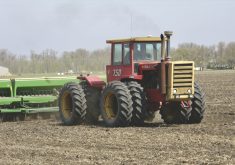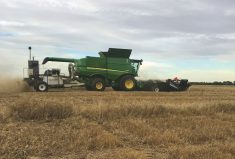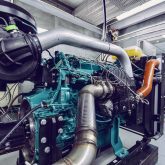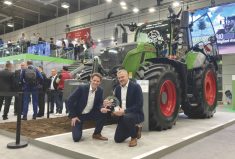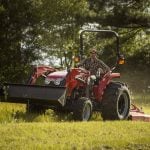The Prince family runs a large-scale family farm in southwestern Manitoba, where for years they have wished for a single, effective piece of seeding equipment that they could use for all of their crops.
Now, they’ve turned that dream into a market-ready implement and a fledgling equipment brand.
Their on-farm creation, the PPS planter, can handle all the crop types they grow on their own farm, including corn, soybeans, wheat and canola. Plus it can apply a full fertilizer application in the same pass, so this one machine does the job of both a planter and a seed drill.
Read Also

Wills and powers of attorney: the basics and why you need them
Every adult should have a will and powers of attorney. In this article, we explain the basics of these essential…
Now comes another challenge that may seem just as big. Can they successfully market the PPS under their company name Capricorn Bay?
Agriculture has seen many farms do something similar in the past, starting with an on-farm invention and building it into a machinery brand. In fact, it’s how many Canadian short-line manufacturers got started.
But ask any executive from those companies about that experience, and they’ll say it was far from easy.
The Prince’s PPS single-pass planter went on display for the first time at western farm shows this summer, where I met Frank Prince standing beside the PPS single-pass planter and we discussed its evolution. Prince explained the planter was the result of several years of on-farm improvisation. Initially, the family was just trying to simplify their own operation.
“We’ve grown corn and soybeans for 15 years, roughly, and we’ve done multiple things to planters to try and put fertilizer on all in one pass, and it’s never worked,” Prince says. “There are lots of other issues with 15-inch spacing toolbars… for ease of working on, for residue, for rocks. So we just said why not put two rows on there and have a row for fertilizer.”
In the process of dealing with those challenges, the family decided to go much further in tailoring a custom planter to their own needs.

“Most planters have a 100-bushel seed tank on them,” Prince explains. “That’s fine for corn, and in canola it’s awesome. But in soybeans it’s 80- to 100-acre fills. For our big fields, all you do is fill all day. So I said why not pull a cart that lets you put on a sizeable amount of seed? We picked 400 (bushels) because you can do a half (section) with soybeans with that and make it commercializable for Western Canada.”
But that kind of tinkering with planter design means it probably won’t suit farmers everywhere. “Will it go to Iowa, probably not,” Prince acknowledges. But as they start their venture direct selling from their farm, it means they have the ability to customize the design to suit a pretty broad variety of farmer needs.
The planter on display in Regina was set up with twin-row openers spaced 20 inches apart that place seed in alternating 7- and 13-inch row spacings. Prince says the configuration has worked well on their farm.
“This one’s twice as easy to work on as the other ones,” he says. “The one I designed has lots of room to work on it. It’s seven inches between two rows and then 13. If someone wants to do wheat or peas, I know it works.”
The drill is able to seed and place one or two fertilizer blends in the furrow. The front bar lays down the main fertilizer application, making it a true single-pass seeder.
“I think the most common spacing would be 15-inch,” said Prince. “Guys will do corn, soybean and canola with them.”
The row units are sourced from U.S.-based Harvest International, and are capable of working at field speeds up to 10 m.p.h. Sorensen Welding in Minnesota builds the unique toolbars for the company.
Partnering with outside manufacturers, not just for the row units but the toolbar as well, allowed the family to build on the expertise of other qualified people and get modifications that advanced their objectives.
“This is his design,” says Prince of the toolbar built by Sorensen. “I went to him and said this is what I want to build. He’s built planters before, so there are things I’m not going to know about that he would. And there are things I’m going to know about that he wouldn’t.”
Getting the benefit of that input gave the family a head start on the design, but there was still some fine tuning to do. Running three working units in the field on different farms and getting feedback from that experience has led to some minor design modifications. The original design on display this summer will not be exactly like those to be sold as PPS machines going forward.
“The casters are too small, they’re getting upgraded to a lot bigger caster,” Prince says. “We had to update the (wing) fold for how much weight was on it. Other than that, the bars have been flawless.”
So far, the Prince family has built three planters and the intention is to offer three toolbars in 40-, 60- and 80-foot working widths. “You can have whatever row spacing you’d like on it,” says Prince.
Interestingly, the family may not remain content with having just a single implement in their emerging machinery brand. There are some very ambitious plans afoot to create custom-built, very high-horsepower tractors, bigger than any off-the-shelf model currently available. “The goal was to build this first,” Prince says of the planter. “Next winter the plan is to put the tractor together.”
Anyone interested in finding out more about the PPS planter can contact the Prince family farm by phone at 204-576-3500.




